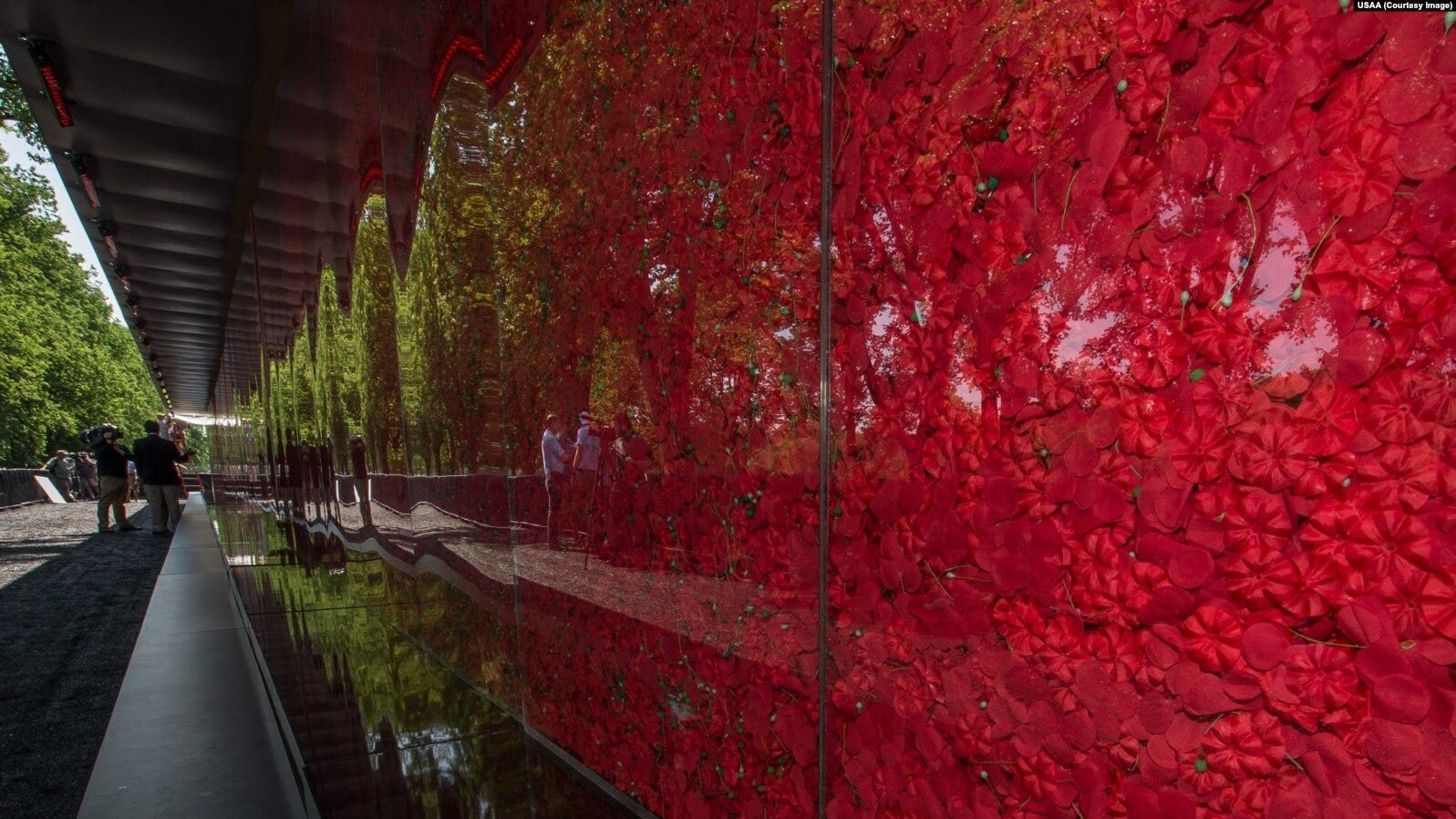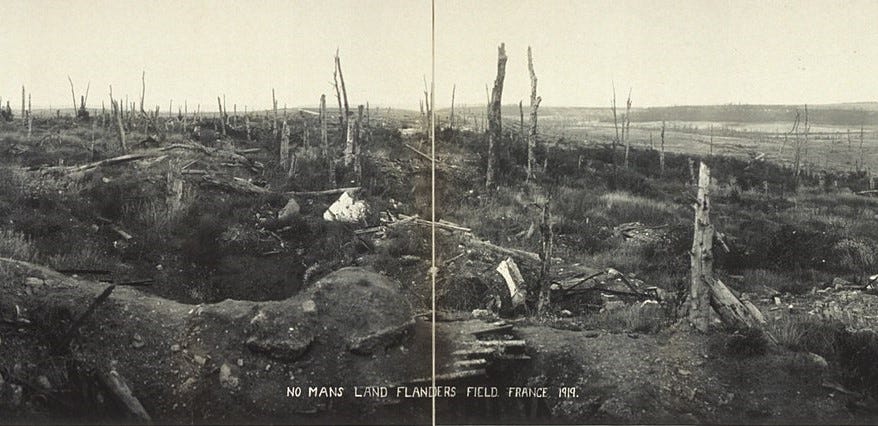
This originally ran on Michael Judge’s Substack, The First Person with Michael Judge, and is reprinted with permission.
Letters From Iowans is a part of the Iowa Writers’ Collaborative. We encourage you, our subscribers, to share your perspective in this column. To make your voice heard, use this form to send us your essay:
This Memorial Day weekend my family will gather in a small Midwestern town — Elma, Iowa, population 506, named for my great grandmother, Elma Brandmill (née Potter) — to do what we’ve done for as long as I can remember: Honor those who’ve died in service of our nation and in defense of our democratic ideals in places with names like the Somme, Normandy, Iwo Jima, Fallujah, and Wanat. Those democratic ideals are once again under siege, most clearly and brutally in Ukraine where Russia’s war of aggression has killed more than 31,000 Ukrainians and let loose a flood of some 6.5 million refugees. Which is all the more reason to gather in a small town named for a strong and outspoken woman who married a European immigrant, Charles Brandmill, an orphan who left 19th-century Prussia in search of a better life, which he found with Elma. And then the two great wars of the 20th century engulfed them. Their oldest son, Parke, died of the Spanish flu while serving in the Army during World War I. And near the end of World War II, their youngest son, Dinsmore, my grandfather, survived the hellish Battle of Okinawa; 12,000 of his comrades didn’t. In their names — and in the names of all those who’ve served our country — TFP will publish the following tribute, “In Flanders Fields,” each and every Memorial Day. — MJ
‘In Flanders Fields’
By Michael Judge
Outside my local grocery store yesterday a young woman was handing out little red “Buddy Poppies” made by veterans and asking for donations to the VFW (Veterans of Foreign Wars). When I asked her if she knew the significance of red poppies for veterans of foreign wars, she looked me in the eye and said, almost too softly to be heard, “In Flanders Fields.”
Those three words sent me back to my childhood and the red silk poppy my grandfather, a World War II combat veteran who survived the battle of Okinawa (12,000 American soldiers didn’t), wore in the lapel of his U.S. Army uniform when he marched — as he did every year into his 80s — on Memorial Day.
The Buddy Poppy Program has helped the VFW live up to its motto, “to honor the dead by helping the living.” It’s a small red flower symbolic of the blood shed in World War I by millions of Allied soldiers in defense of freedom. It was originally sold to provide relief for the people of war devastated France. Later, its sale directly benefited thousands of disabled veterans, as it still does today.
On Memorial Day, we remember and honor all who gave their life so that, in President Lincoln’s immortal words, “government of the people, by the people, for the people, shall not perish from the earth.” First enacted after the Civil War as Decoration Day, it was extended after World War I to honor all Americans who gave their lives in service to their country.
The numbers are sobering, and staggering: Nearly 7,000 U.S. service members died in our post-9/11 wars in Afghanistan and Iraq. In Vietnam, more than 90,000 Americans gave their lives; in Korea, more than 54,000; in World War II, more than 405,000; in World War I, more than 116,000. And those numbers don’t include the over 600,000 Americans who died in the Civil War, more than World War I and World War II combined.
So why did that young woman whisper “In Flanders Fields” to me? John McCrae, a Canadian poet, soldier, and physician, who tended to wounded soldiers during World War I, wrote “In Flanders Fields” to memorialize the horrific April 1915 battle in Belgium’s Ypres salient. “For 17 days, McCrae tended those injured in the battle,” says the Poetry Foundation’s biography of McCrae. “The poem, written after the death of a close friend, was first published in Punch magazine and led to the adoption of the poppy as the Flower of Remembrance for the British and Commonwealth war dead.”
By all accounts, the battles that took place in Flanders Fields were hellish. “Dismembered soldiers sucked into cesspools of mud,” said one AP report. “Shattered tree trunks and the waft of poison gas hovering over the wounded who were awaiting their fates on the scarred soil of Flanders Fields. The Third Battle of Ypres … was as bad as World War I would get. Half a million soldiers were estimated to have been killed or wounded during the 100-day battle and one name keeps coming back: Passchendaele, now as grim a symbol as any field of war ever remembered.”
In the spring of 1915, shortly after losing his friend in Ypres, McCrae wrote his now famous poem while seeing poppies growing in battle-scarred fields. Below is the full text of McCrae’s haunting poem, and here is a beautiful recitation by McCrae’s fellow Canadian, the late great Leonard Cohen.
Read and listen and honor all who have fallen.
In Flanders Fields
In Flanders fields the poppies blow
Between the crosses, row on row,
That mark our place; and in the sky
The larks, still bravely singing, fly
Scarce heard amid the guns below.
We are the Dead. Short days ago
We lived, felt dawn, saw sunset glow,
Loved and were loved, and now we lie,
In Flanders fields.
Take up our quarrel with the foe:
To you from failing hands we throw
The torch; be yours to hold it high.
If ye break faith with us who die
We shall not sleep, though poppies grow
In Flanders fields.




